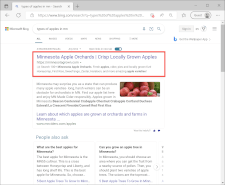PPC
Stands for "Pay Per Click."
PPC is a term used in online marketing, referring to an advertising strategy that links payments for online advertising to the number of times people click an ad. PPC ads commonly appear on search engine results pages and social media feeds. An advertiser's goal when running a PPC campaign is to bring interested users to a website to sell a product or service.
Search engines and social media sites usually run PPC advertisements through an auction model. When the site shows an ad, it runs an instant auction to decide whose ad to show. First, an advertiser sets a maximum cost-per-click (CPC) that they're willing to pay. They also choose the search keywords or social media demographics they want to target. The ad platform even looks at the quality of the ad itself—how relevant it is to the selected keywords, whether the landing page provides a good user experience, and the ad's previous click-through rate (CTR). This combination of factors means that the ad with the highest maximum CPC does not necessarily win since a poor-quality ad with the highest CPC can lose to a higher-quality ad with a slightly lower CPC.
Ad networks also sell banner ads on other websites using a PPC model, but at a flat rate instead of a bid. The ad platform and the advertiser agree on a CPC before running the ads, and pages with higher traffic or a more valuable audience command a higher CPC.
NOTE: PPC advertising is most used when an advertiser wants to drive traffic to their website. If the goal is to drive brand awareness, advertising campaigns can use a cost-per-mille (CPM) model that pays per thousand impressions (the number of times an ad is displayed instead of clicked). Other ad campaigns may run on a cost-per-lead (CPL) basis, paying when an interested potential customer signs up to learn about an offer.
 Test Your Knowledge
Test Your Knowledge